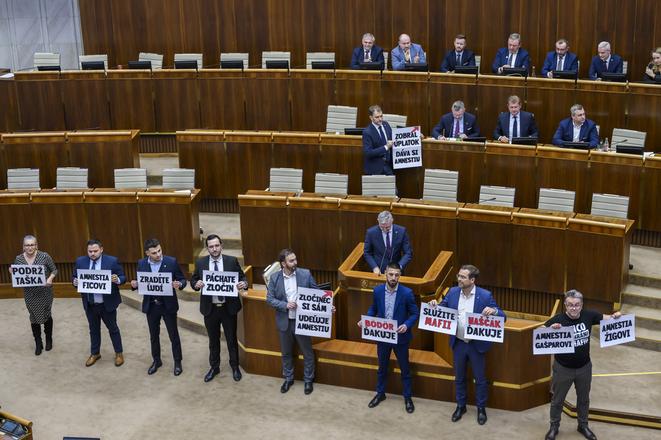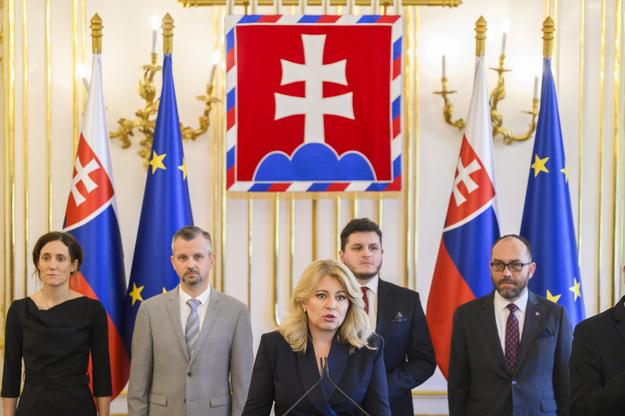The Constitutional Court doesn’t seem to view the imminent amendment to Slovakia’s criminal laws in the same way as the government: on February 28 it temporarily stopped the effectiveness of some of its key sections, two weeks before it was due to come into force.
According to the court, the suspended parts could “cause serious and irreparable consequences resulting in a violation of the principle of the rule of law”.
The court announced its decision in a press release on Thursday, February 29.
The panel of 12 judges decided, albeit not unanimously, to suspend all the changes to the Penal Code and the Act on Criminal Liability of Legal Entities, as well as some changes to the Criminal Procedure Law. Specifically, the panel sees a danger in reducing penalties, shortening the statutes of limitations, and at the same time rewriting the criminal damage classification, but also in reopening previously approved plea bargains and using illegally obtained evidence in a criminal proceeding only in favour of the charged.
“The decision of the Constitutional Court is good news for democracy and the rule of law in Slovakia,” President Zuzana Čaputová announced immediately after the court’s announcement, adding that the decision is also an important “message to our foreign partners that the finances of European taxpayers remain adequately protected in Slovakia.”
The three-party ruling coalition (comprising Smer, Hlas and the Slovak National Party (SNS)) approved the amendment via fast-tracked legislative procedure - which avoids consultation with experts or the public - on February 8, ignoring grave concerns raised by the president, the opposition, experts, the European Public Prosecutor’s Office, the European Commission, and the European Parliament. Instead, the coalition claimed that the changes to the Penal Code would make it ‘modern’ and ‘European’.
“Slovakia will be fairer and better for all citizens,” said Justice Minister Boris Susko (Smer) as the changes were approved.
By contrast, the opposition made sustained attempts to slow its parliamentary progress and a series of public mass protests across the country, as well as in some European cities, demonstrated widespread, strong opposition to the amendment following its submission to parliament last December.
The opposition forces, led by Progressive Slovakia (PS), a liberal pro-European party, have repeatedly referred to the amendment as a ‘pro-mafia package’ and warned against the “amnesty for [Prime Minister Robert] Fico and [Speaker of Parliament Peter] Pellegrini’s people”. This is a reference to the fact that several current high-profile corruption cases would be time-barred and that a number of influential people now facing criminal prosecution would likely evade conviction, or would receive a non-custodial sentence even if convicted, should the changes be implemented. The cases date back to the era before 2020, when Smer – which is now, again, the largest party in the current coalition – was the dominant political force in Slovakia.
After the changes to the Penal Code were passed by MPs in early February, anti-corruption organisations warned that the amendment “makes corruption and other property crimes more attractive” and weakens public protection.
Therefore, in their separate motions, President Čaputová and the opposition turned to the Constitutional Court on February 19 and 20 in an effort to have the amendment suspended. At the same time, they asked the court to examine whether the amendment is in line with the Constitution. For the time being the court hasn’t dealt with the matter of constitutionality of the amendment, saying that it will look into the matter. Its final decision is not expected for several months.



